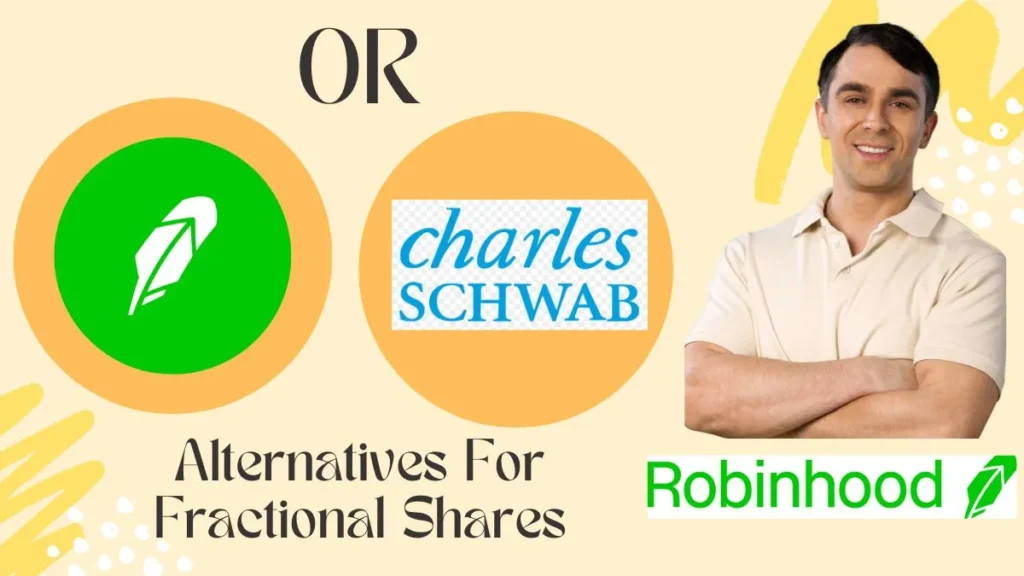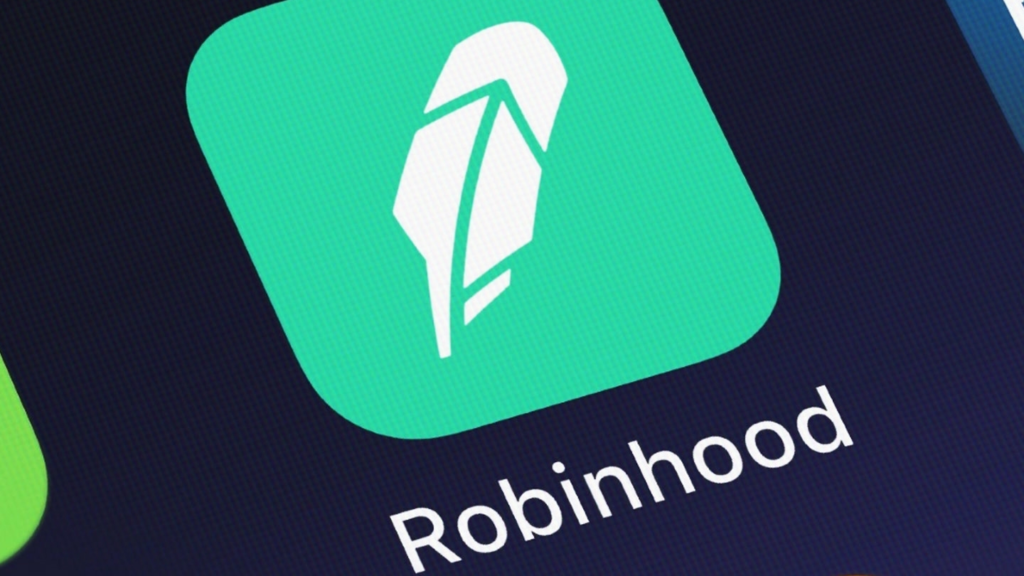It may seem challenging to find alternatives to Robinhood if you’re looking for a different investment experience with lower fees and more accessible trading of stocks, options, ETFs, and cryptocurrency.
However, exploring other platforms can often lead to better investment opportunities.

Some alternatives to Robinhood include Webull, Tastytrade, Charles Schwab, and Moomoo. These platforms offer commission-free trading of ETFs, options, and other features that can help diversify your portfolio.
Coinbase or Binance may be better alternatives to Robinhood if you’re mainly interested in cryptocurrency trading.
It’s also worth noting that some brokers offer sign-up bonuses for opening new accounts or transferring from other platforms, providing a great opportunity to try out different platforms without additional costs.
Let’s dive into the article and explore these alternatives to Robinhood.
Competitors & Alternatives to Tastytrade
| Platform | Deposit and Withdrawal Methods | Minimum Balance | Investment Options |
| Robinhood | Bank transfer, debit card | None | Stocks, ETFs, options, cryptocurrencies |
| Tastytrade | Bank transfer, wire transfer | None | Stocks, ETFs, options, futures |
| Moomoo | Bank transfers, wire transfers, mobile payment services | None | Cryptocurrencies,EFTs, International markets, Margin trading |
| Webull | Bank transfer, wire transfer | None | Stocks, ETFs, options, cryptocurrencies, ADRs |
| Charles Schwab | Bank transfer, wire transfer | None | Stocks, ETFs, options, mutual funds, bonds, CDs |
Alternative for Commision-free Trading: Moomoo

Moomoo is an online platform where you can invest your money in things like stocks, options, and ETFs. It’s similar to Robinhood, but it offers some unique perks.
With Moomoo, you can trade without paying any fees, and they even have promotions for users in the US, Canada, and Australia.
Plus, they provide powerful tools and resources to help you make informed investment decisions.
Features of Moomoo
- Commission-Free Trading: Trade stocks, ETFs, and options without paying any fees. Additionally, it provides a sign-up bonus, as well as a bonus for referrals.
- Access to Advanced Tools: Get access to real-time market data, advanced charting tools, and technical analysis.
- 24/7 Customer Support: Reach out for help anytime through live chat or phone support during trading hours.
- Wide Range of Investments: Invest in stocks, ETFs, ADRs, and OTCs through Moomoo’s platform.
- Educational Resources: Learn about investing with free educational content and access to paper trading to practice your strategies.
- Security Measures: Your personal information is kept secure with encryption and access restrictions.
Similarities between Moomoo and Robinhood
- Commission-Free Trading: Both platforms allow users to trade stocks, ETFs, and options without paying any fees.
- User-Friendly Mobile Apps: Moomoo and Robinhood offer intuitive mobile apps for convenient trading on smartphones.
- Empowering Investors: Both platforms aim to empower investors by providing access to the financial markets and educational resources.
Pros & Cons
Pros
- Commission-free trading
- 6.8% margin rate
- 5.1% APY in the Cash Sweep program for new and qualified customers
- Free Level 2 data for funded brokerage accounts
- Advanced charting tools with 100+ indicators
Cons
- Doesn’t support fractional stocks
- No support for crypto
- Doesn’t support retirement accounts or mutual funds
Alternatives for User-Friendly Mobile App: Webull

Webull is an online platform where you can easily invest your money in stocks, options, and ETFs, whether you’re new to investing or a seasoned trader.
It’s designed with a sleek interface for both desktop and mobile apps, making it convenient for users who prefer to trade on the go. While it caters to casual investors, it also offers a range of tools for more active traders.
Features of Webull
- Low Costs: Webull doesn’t charge any fees for trading stocks, options, or ETFs, helping you save money on transactions. It also offers a Webull sign up bonus.
- User-Friendly Platform: Its easy-to-use interface makes it easy to navigate and use, whether you’re on your computer or smartphone. You can also benefit from Webull’s referral bonus program.
- Advanced Tools: Webull provides a variety of advanced charting and analysis tools, suitable for both beginner and experienced traders.
- Access to Cryptocurrency: You can also invest in cryptocurrencies through Webull, expanding your investment options.
- High Interest Rate on Cash: Webull offers a competitive interest rate on uninvested cash, allowing your money to grow even when it’s not invested.
Similarities between Webull and Robinhood
- Mobile-First Generation Appeal: Both Webull and Robinhood are popular among the mobile-first generation of investors, offering sleek mobile apps for trading on smartphones.
- Commission-Free Trading: Alternative to Robinhood, Webull allows users to trade stocks, options, and ETFs without paying any fees, making it a cost-effective option to traditional brokerage platforms.
- Access to Advanced Tools: Webull, similar to Robinhood, provides access to advanced charting and analysis tools, catering to both casual investors and active traders looking for powerful features.
Pros & Cons
Pros
- Low costs.
- Easy-to-use platform.
- Advanced tools.
- Access to cryptocurrency.
- High interest rate on uninvested cash.
- High order execution quality.
Cons
- No mutual funds.
- Thin educational support.
Alternatives For Educational Resources, Research tools: Tastytrade

Tastytrade is an online investment platform tailored for active traders, offering a wide range of investment options including stocks, ETFs, futures, and cryptocurrencies.
Founded in 2017 by Scott Sheridan and Tom Sosnoff, Tastytrade aims to provide professional-grade tools to retail investors, drawing on the expertise of its founders who were also involved in creating the Thinkorswim platform for TD Ameritrade.
Features of Tastytrade
- Commission Structure: Tastytrade offers low-commission trading, with many trades, such as stocks and ETFs, available for free.
- Cryptocurrency Access: Unlike many other brokerages, Tastytrade provides access to cryptocurrency trading with low commissions and caps on fees for buying and selling various cryptocurrencies.
- Fractional Shares: Investors can trade fractional shares, similar to Robinhood, allowing them to invest in stocks without needing to purchase whole shares.
- Account Variety: Tastytrade offers various account types including individual, joint, retirement, and entity accounts, catering to different investor needs.
- User-Friendly Interface: The platform is user-friendly, customizable, and accessible both on computers and mobile devices, ensuring seamless trading experiences.
- Research and Education: While lacking in extensive research resources, Tastytrade compensates with educational content through its affiliate, tastylive, offering daily live videos covering options, investment strategies, and market-related topics.
- Transparent Pricing: Tastytrade maintains transparency in its fee structure, ensuring users are aware of all costs associated with trading. You can also explore alternatives to Tastytrade.
Similarities between Tastytrade and Robinhood
- Commission-Free Trades: Alternative to Robinhood, Tastytrade offers commission-free trading for stocks and ETFs, making it a cost-effective option for investors.
- Access to Cryptocurrency: Both platforms provide access to cryptocurrency trading, allowing users to invest in digital assets alongside traditional securities.
- Fractional Shares: Tastytrade, similar to Robinhood, supports fractional share trading, enabling investors to buy partial shares of stocks, and making investing more accessible to a broader audience.
- User-Friendly Interface: Tastytrade and Robinhood offer user-friendly interfaces, suitable for both beginners offering a Tastytrade sign up bonus and experienced traders, enhancing the overall trading experience.
Pros & Cons
Pros
- Low trading fees
- Great educational materials
- Good research tools
Cons
- Limited product selection
- Few deposit and withdrawal options
- No demo account
Alternatives For Fractional Shares: Charles Schwab

Charles Schwab is a brokerage firm known for its exceptional customer service, $0 trade commissions, and extensive selection of mutual funds.
With no minimum account requirement, Schwab caters to both beginner investors and advanced traders, offering a diverse range of investment options and robust research tools.
Features of Charles Schwab
- Zero Trade Commissions: Schwab offers commission-free trading for stocks, options, and ETFs, making it a cost-effective choice for investors.
- Multiple Trading Platforms: With four trading platforms available at no cost and no minimums, Schwab provides flexibility and convenience for traders of all levels.
- Extensive Research: Schwab provides comprehensive research resources, including equity ratings, analyses from top research firms, and in-house commentary.
- Large Fund Selection: Investors can choose from a vast selection of mutual funds with low expense ratios and no transaction fees, catering to various investment strategies.
- Low Account Fees: Schwab maintains low account fees, with no annual or inactivity fees and reasonable charges for asset transfers.
Similarities between Charles Schwab and Robinhood
- Commission-Free Trades: Both Charles Schwab and Robinhood offer commission-free trading for stocks, options, and ETFs.
- Zero Account Minimum: Alternatives to Robinhood, Charles Schwab has no minimum account requirement, making it accessible to all investors. You might consider checking out a review of Charles Schwab.
- User-Friendly Platforms: Schwab and Robinhood provide user-friendly trading platforms with sign up bonuses suitable for beginners and experienced traders alike.
Pros & Cons
Pros
- Four trading platforms with no minimum or fees.
- Above-average mobile app.
- Extensive research.
- Large fund selection.
- Commission-free stock, options, and ETF trades.
Cons
- The low interest rate on uninvested cash.
All About Robinhood

Robinhood is an app that changed the brokerage industry by eliminating trade commissions, making it easy for people to trade stocks, options, ETFs, and cryptocurrency.
Moreover, it offers a reward program with a Robinhood sign up bonus and a Robinhood referral bonus.
Recently, they added Individual Retirement Accounts (IRAs) with a 1% match on contributions. However, Robinhood has faced criticism, lawsuits, and fines from regulatory authorities due to certain practices that led to public outrage.
In June 2021, they paid nearly $70 million in fines, the largest penalty ever from the Financial Industry Regulatory Authority.
Ways to Earn Money with Robinhood

- Earn up to 3%: By earning up to 3% extra on every dollar contributed to your IRA, you can increase your investment returns over time.
- IRA transfers and 401(k) rollovers: Getting a 3% bonus on IRA transfers and 401(k) rollovers motivates individuals to combine their retirement accounts with Robinhood, potentially leading to higher investment gains.
- Subscription fee applies: While there’s a subscription fee for Robinhood Gold, the potential earnings from the 3% match on IRA contributions may be greater than the cost of the subscription, making it a good option to consider for increasing returns.
- Keep Gold for 1 year: Maintaining your Robinhood Gold membership for at least one year can lead to greater investment opportunities and returns.
- IRA for 5 years: Holding your IRA account with Robinhood for a minimum of five years is a long-term investment strategy that fits with wealth-building goals, potentially resulting in significant growth over time.
Conclusion
Robinhood offers various opportunities for investors to potentially increase their earnings, it’s essential to explore alternative platforms to ensure you’re making the most of your investments. Explore the differences between Fidelity and Robinhood to gain a deeper understanding of what Robinhood brings to the table.
Platforms like Charles Schwab provide features like IRA matches and subscription-based services, offering competitive advantages that can help you grow your wealth over time.
By considering these alternatives and understanding their offerings, investors can make informed decisions to maximize their returns and achieve their financial goals.
For a more comprehensive insight, consider reading a review of Robinhood.
FAQ
What are alternatives to Robinhood?
Alternatives to Robinhood are other platforms or apps where you can buy and sell stocks, cryptocurrencies, and other investments, just like you do on Robinhood. These alternatives offer similar features but may have differences in pricing, available assets, and additional services.
Why would someone consider using an alternative to Robinhood?
People might consider alternatives to Robinhood for various reasons. Some might be looking for different investment options that Robinhood doesn’t offer. Others might want to explore platforms with different fee structures or additional features like research tools, educational resources, or customer support.
What are some examples of alternatives to Robinhood?
Some examples of alternatives to Robinhood include platforms like Webull, TD Ameritrade, and E*TRADE. These platforms offer similar services for buying and selling stocks, ETFs, and options, but they might have different fee structures, account minimums, or additional features that could be appealing to different users. It’s essential to explore and compare these alternatives to find the one that best fits your investment needs and preferences.
